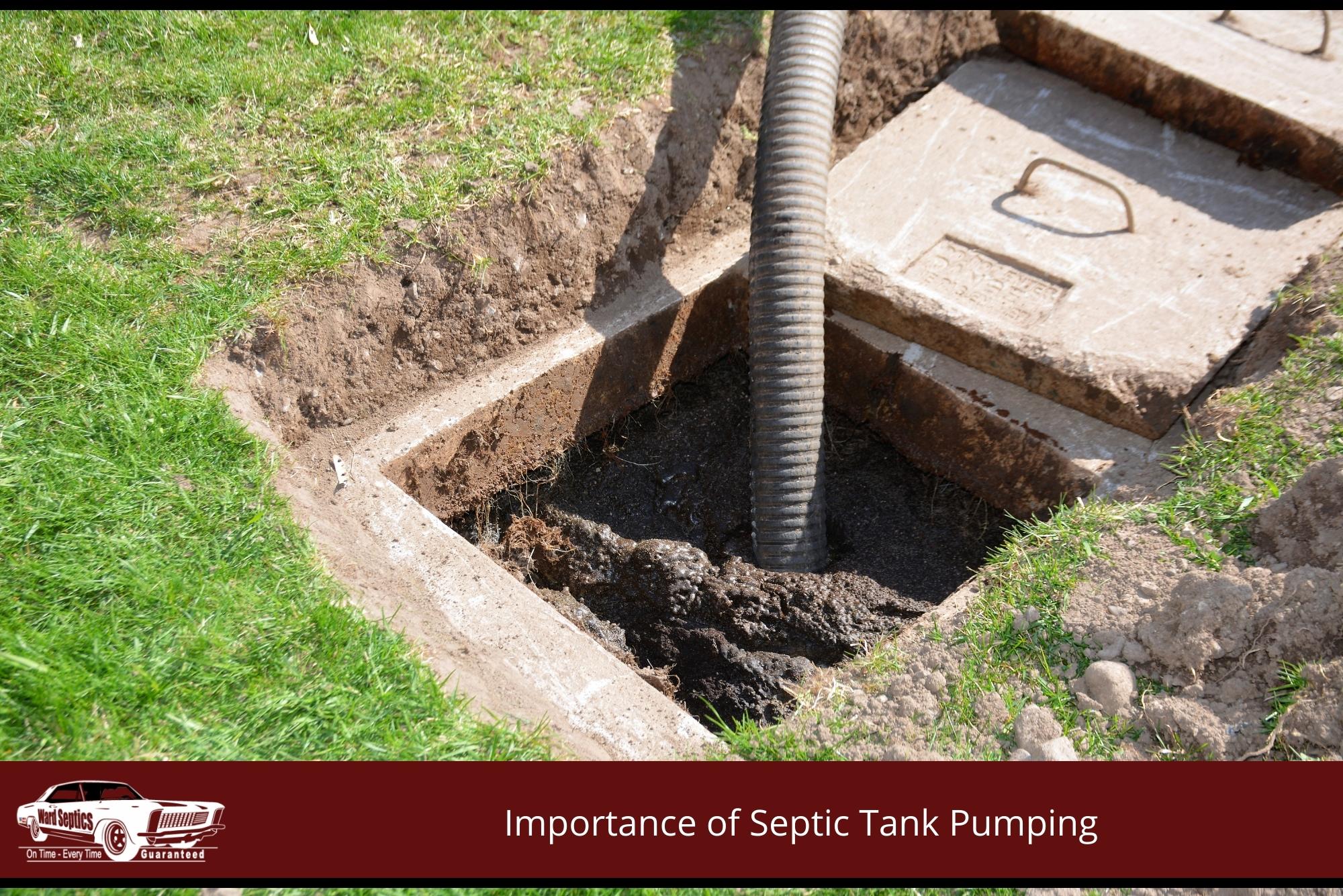Septic tank pumping is a crucial maintenance task that ensures the proper functioning of your septic system. Regular pumping helps prevent costly repairs, system failures, and potential health hazards. In this comprehensive guide, we’ll explore everything you need to know about septic tank pumping, including why it’s important, when to schedule it, and how the process works.
Understanding Your Septic System
Before diving into septic tank pumping, it’s essential to understand the basics of your septic system. A septic system is an on-site wastewater treatment system commonly used in rural and suburban areas. It consists of a septic tank and a drain field. The septic tank collects and separates solid waste from wastewater, allowing the solids to settle at the bottom while the liquid flows into the drain field for further treatment.

Importance of Septic Tank Pumping
Regular septic tank pumping is vital for maintaining the health and longevity of your septic system. Over time, solid waste accumulates in the tank, leading to sludge buildup. If left unattended, this sludge can clog the system, causing backups, foul Odours, and potential environmental contamination. Pumping removes the accumulated sludge, preventing these issues and promoting the efficient functioning of the entire septic system.
Signs That Your Septic Tank Needs Pumping
While regular pumping is recommended, certain signs indicate that your septic tank requires immediate attention. Look out for indicators such as slow drains, gurgling noises in the plumbing, unpleasant odours, sewage backups, or unusually lush and green patches in the drain field area. These signs often suggest that your septic tank is nearing its capacity and needs pumping.
Frequency of Septic Tank Pumping
The frequency of septic tank pumping depends on several factors, including the size of your household, tank capacity, and water usage. As a general guideline, it is recommended to have your septic tank pumped every 3 to 5 years. However, households with large families, excessive water usage, or smaller tank sizes may require more frequent pumping. Consulting with a septic professional can help determine the ideal pumping schedule for your specific situation.

The Septic Tank Pumping Process
Understanding the septic tank pumping process can alleviate any concerns you may have. Here’s a step-by-step overview:
- Inspection – A septic professional will inspect the tank, assess its condition, and determine the appropriate pumping technique.
- Accessing the Tank – The technician will locate and uncover the tank’s access point, typically through a manhole cover or riser.
- Pumping – Using specialised equipment, the technician will pump out the accumulated sludge and scum from the tank.
- Inspection and Cleaning – Once the tank is empty, the technician may inspect the interior for any signs of damage or leaks. If necessary, they will clean the tank to remove any remaining debris or residue.
- Proper Disposal – The pumped waste is transported to an authorised treatment facility for proper disposal and treatment.
Additional Septic System Maintenance Tips
While septic tank pumping is crucial, other maintenance practices can help extend the life of your septic system. Some additional tips include:
- Mindful Water Usage – Conserving water and avoiding excessive usage can prevent overloading the septic system.
- Proper Waste Disposal – Avoid flushing non-biodegradable items, chemicals, and grease down the drains or toilets.
- Regular Inspections – Schedule routine inspections by a professional to identify any issues early on.
- Drain Field Care – Protect the drain field from heavy vehicles, excessive water, and invasive plant roots.

Ward Septics, your trusted septic system expert
Septic tank pumping is a vital maintenance task that ensures the proper functioning and longevity of your septic system. By understanding why septic tank pumping is important, recognising the signs of when it’s needed, and following a proper pumping schedule, you can avoid costly repairs and potential health hazards. Remember to consult with a septic professional to determine the ideal pumping frequency for your specific situation. With regular pumping and responsible maintenance, your septic system will continue to provide efficient wastewater treatment for years to come. Top of Form
Don’t let septic system problems disrupt your life. Whether you need routine maintenance, septic tank pumping, drain field inspections, or assistance with any septic-related issue, Paul and his team at Ward Septics are here to help.
With years of experience and a commitment to customer satisfaction, Paul provides efficient and dependable services tailored to your specific needs. No matter the size of your septic system or the complexity of the problem, you can trust Ward Septics to deliver top-quality solutions.
Don’t let septic system worries keep you up at night. Let Paul and his team at Ward Septics handle all your septic system needs, so you can enjoy a worry-free home environment. Contact them now and experience the difference! Call us today 0438 315 514.








